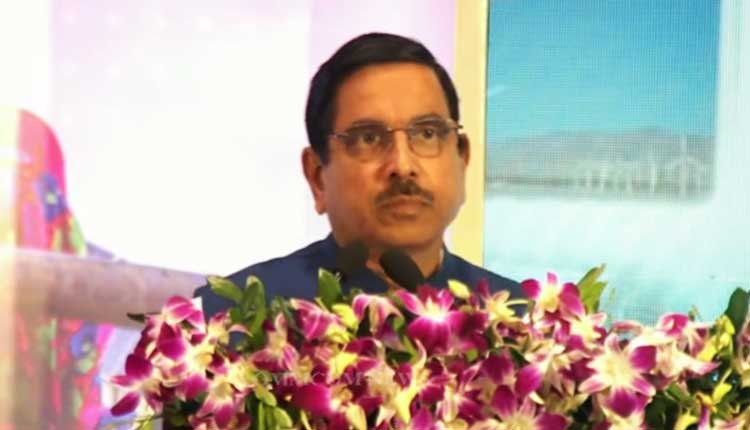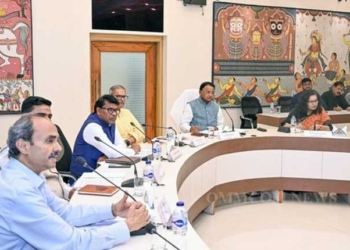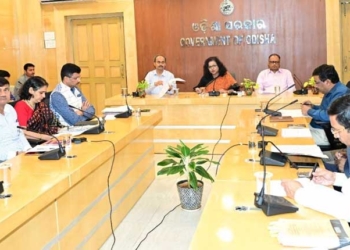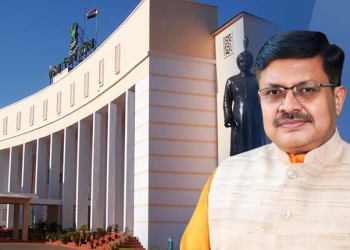Bhubaneswar: Union Minister for New and Renewable Energy, Pralhad Joshi, announced Odisha’s immense potential to become a major renewable energy hub, with ambitious plans for solar and green hydrogen production.
Speaking at the valedictory session of the two-day Chintan Shivir 2024 in Bhubaneswar, the Minister highlighted Odisha’s renewable energy capacity and strategic importance due to its long coastline and robust port infrastructure.
Joshi revealed that Odisha holds a solar energy potential of 140 GW, with plans to explore floating solar panel installations. Additionally, its significant opportunities for green hydrogen production align with India’s push toward achieving the “Panchamrit” goals announced by Prime Minister Narendra Modi.
Two major projects are already in progress in the state. A 6,000 MW solar module manufacturing facility is being set up in Dhenkanal district with an investment of ₹9,000 crore. Another project with a 1,000 MW capacity for manufacturing solar modules and cells is being developed in Khordha, Bhubaneswar, with an investment of ₹730 crore.
The Minister emphasized the government’s efforts to boost the domestic renewable energy sector through measures like hackathons for startups, expansion of the Production Linked Incentive (PLI) scheme, and assured offtake to promote indigenization of renewable technologies.
Deputy Chief Minister of Odisha, Kanak Vardhan Singh Deo, reaffirmed the state’s commitment to supporting the Union Government in achieving the renewable energy targets, including the 2030 goal of 500 GW of non-fossil fuel energy.
The Chintan Shivir witnessed participation from over 117 industry leaders, 67 representatives from states and PSUs, and 12 major renewable energy-producing states. Key topics like solar and wind energy deployment, green hydrogen, energy storage, and policy development were discussed across 17 sessions.
Concluding the event, Union Minister Joshi expressed optimism about the collaborative roadmap developed during the Shivir, emphasizing the need for timely Power Purchase Agreements (PPAs), strict enforcement of Renewable Purchase Obligations (RPOs), and inter-ministerial coordination to overcome sector challenges.
















